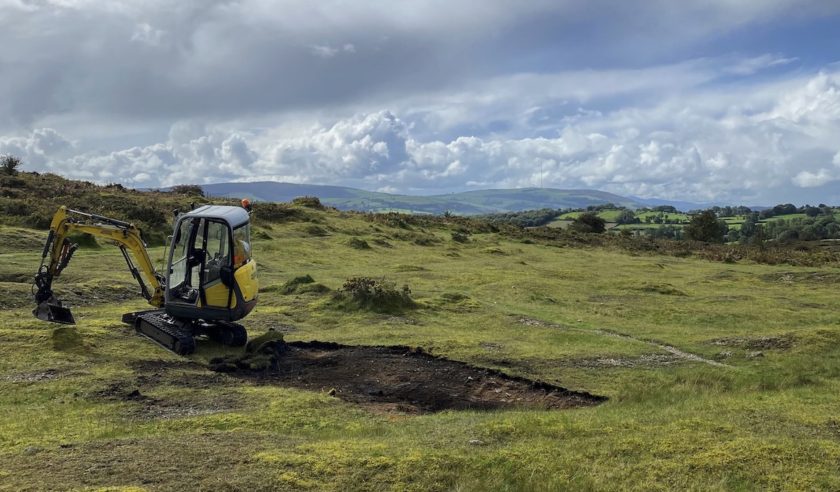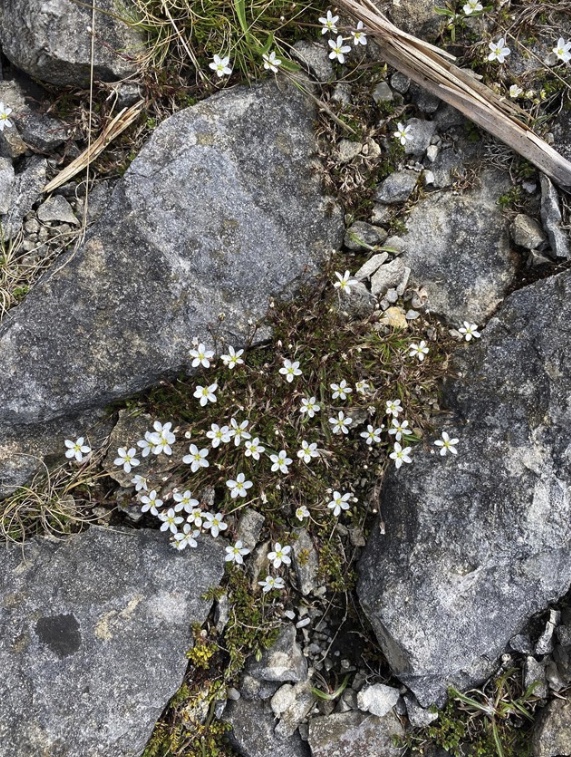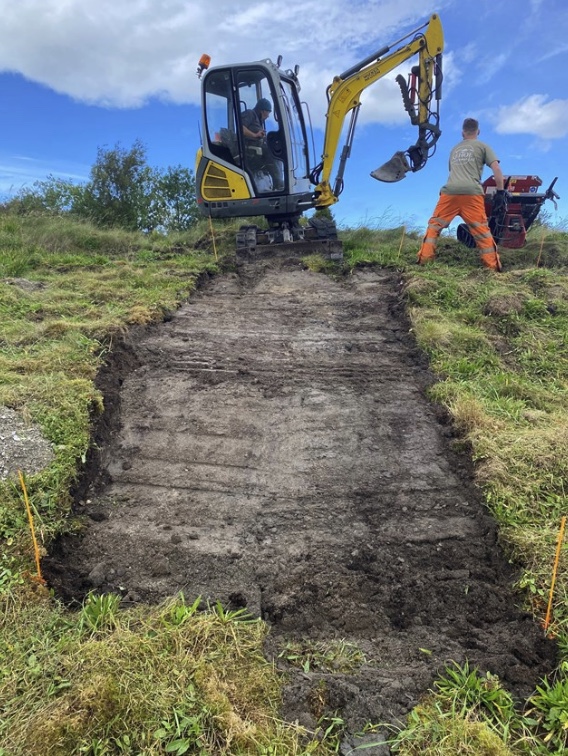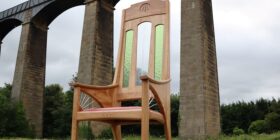Halkyn Mountain: Mining history aids rare habitat conservation

The rich mining history of a mountain in Flintshire has led to the existence of a rare and valuable habitat, which is now the focus of a new round of dedicated conservation work by Natural Resources Wales (NRW).
In a bid to re-establish the rare Calaminarian habitat – a heavy metal tolerant grassland associated with old mine spoil – NRW has begun scraping surface vegetation on Halkyn Mountain.
This process will expose the underlying soil and increase the likelihood of natural reseeding from nearby Calaminarian habitats.
The habitat supports rare species such as the spring sandwort, as well as heavy metal tolerant mosses and lichens.

Contractors will work on six scrape areas in total to expose crucial bare ground and encourage the reappearance of native species.
The work will be meticulously monitored annually by NRW officers in partnership with the local Halkyn Mountain Nature Conservation Group, ensuring the delicate ecosystem is preserved and thrives.
This project is considered a pilot. Insights gleaned from it will inform future management and conservation strategies for this rare habitat across Wales, contributing to the broader ecological conservation goals.
Halkyn Common & Holywell Grasslands and Halkyn Mountain hold the largest areas of heavy metal tolerant grassland in Wales, making up an astounding 79% of the total amount of this type of Calaminarian grassland found in the country.

Elizabeth Felton, NRW Environment Team Leader, highlights the significance of the work on Halkyn Mountain.
She said: “The work on Halkyn Mountain is very important as it stands to boost a large proportion of some of the only Calaminarian habitat found here in Wales.
“We hope our intervention is a timely one given this rare habitat on Halkyn Mountain is currently under threat from numerous forces, including under grazing that results in overgrown vegetation, and human-led activities such as illegal dirt biking.
“Due to the nature of scraping work, the ground might look damaged initially, and this could alarm some people. However, it’s worth emphasising that the true effect will take at least a year to come to fruition as we await to see which species recolonise the scraped areas.”
Spotted something? Got a story? Send a Facebook Message | A direct message on Twitter | Email: [email protected] Latest News








